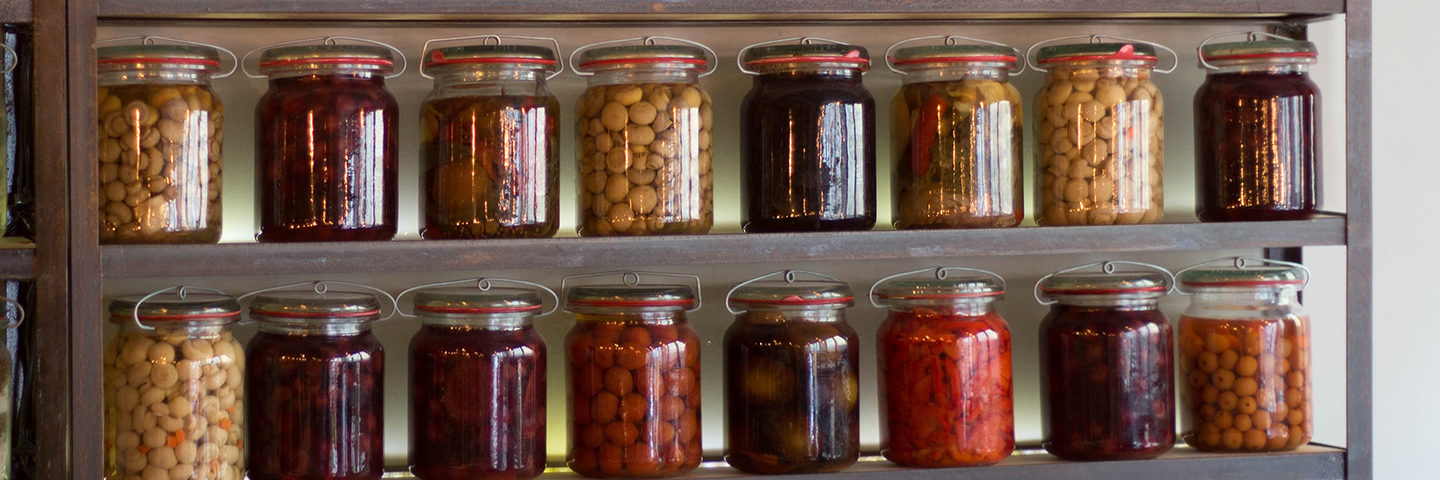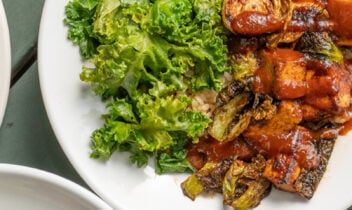
Prebiotics & Probiotics May Help Those With Celiac Disease
Prebiotics and probiotics may help those with celiac disease maintain overall health by balancing bacterial gut health.
What this Means
Celiac disease (CD) is an autoimmune disorder that causes the immune system to launch an attack on the small intestine when a person consumes gluten.1 Gluten is a protein found in wheat, rye, and barley. The ingestion of gluten damages the villi of the small intestine. This is an issue because these villi are responsible for nutrient absorption, and when they’re damaged, the body isn’t able to absorb nutrients properly.
Celiac disease affects about 1 in 100 people worldwide. It is a hereditary disease, so individuals with a parent or sibling with the disease have a 1 in 10 chance of developing it. Side effects of CD include long-term health conditions due to the malabsorption of nutrients. Such conditions may include iron-deficiency anemia, early-onset osteoporosis, infertility or miscarriage, gall bladder malfunction, and lactose intolerance, among other issues. At this point in time, the only surefire way to combat CD is a life-long commitment to a strict gluten-free diet to limit small-intestine damage. Even ingesting small amounts of gluten, like bread crumbs from a toaster or cutting board, can trigger damage.
Why this Matters
Nutrient malabsorption is a serious health concern. Treating CD through a gluten-free diet is the most effective and promising way to ensure optimal health. Many other treatments have been identified, including genetically modified gluten, zonulin inhibitors, therapeutic vaccines and recently, probiotics.2
Prebiotics and probiotics (P&Ps) promote the growth of helpful gut bacteria.3,4 For those with digestive tract disorders, P&Ps are recommended to help rebalance good bacteria and restore the body’s community of bacteria, or microbiome. CD affects the small intestine, an integral organ for digestion, as the small intestine is responsible for 90% of the digestion and absorption of food (the other 10% takes place in the stomach and large intestine).
Prebiotics are natural, non-digestible food ingredients linked to good bacterial growth. Foods that contain prebiotics include bananas, garlic, onions, leeks, asparagus, legumes, oatmeal, artichokes, soybeans and whole-wheat foods. Essentially, prebiotics serve as non-digestible carbs that contain fiber and function as food for probiotics. Obviously, those with CD should not consume prebiotic whole-wheat foods because the damage done to the small intestine would overshadow the gut health benefit!
Probiotics, on the other hand, are actually bacteria themselves that help change or repopulate intestinal bacteria and balance gut flora. Probiotic foods are typically fermented, such as yogurt, kefir, some aged and soft cheeses, miso soup, sauerkraut, tempeh, kimchi, kombucha, sourdough bread, buttermilk and pickles.4 A healthy gut is essential for fighting off the “bad” bacteria that cause sickness and infection, which helps to boost immunity and overall health. P&Ps are a dynamic duo because prebiotics promote good bacterial growth and probiotics are good bacteria themselves, so the pairing is synergistic. Products that combine P&Ps are called “synbiotics.”
Our Advice
The best way to combat celiac disease is a life-long commitment to a strict gluten-free diet to limit small-intestine damage. If you or someone you know has celiac disease, try adding P&Ps to your diet to help enhance gut health, as the disease takes a disconcerting toll on the digestive system. As always, we encourage P&Ps to be consumed through whole foods rather than supplements because whole foods offer a myriad of other nutrients, antioxidants, vitamins, minerals and fiber.
6 Ways to Incorporate More Prebiotics & Probiotics into Your Diet
- Bananas and yogurt (synbiotic combo!)
- Oatmeal and bananas
- Lentils with yogurt
- Miso soup with leeks and onion
- Sautéed tempeh with garlic, asparagus and onion
- Add pickles and sauerkraut to sandwiches you already enjoy


